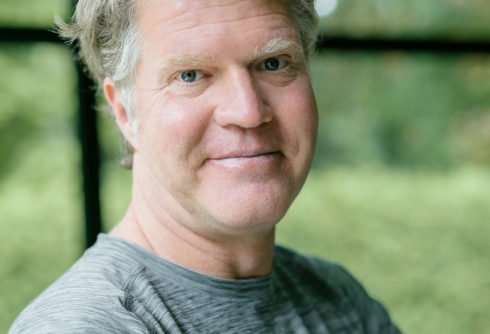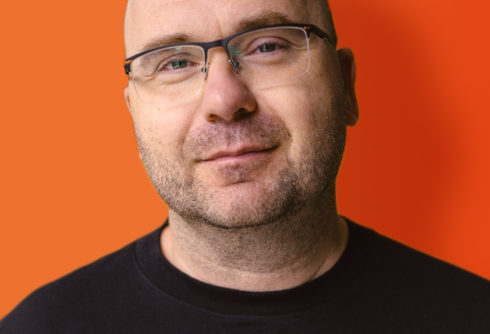BrandBourg and Tulipe are part of the Humanise Collective, a group of nine independent but complementary firms with 350 employees in offices in Montréal and Toronto. Both firms specialize in merger and acquisition projects and business valuation in the context of a sale. Compared to traditional communications firms, BrandBourg and Tulipe advocate strategic approaches for both the business-to-business (B2B) and business-to-consumer (B2C) segments to ensure that the brand strategy is aligned with the company’s vision and can receive buy-in from all stakeholders.
Christian Pichette, Senior Partner and President of BrandBourg, is actively involved in creating value for companies through acquisitions or planned sales. Over the course of his career, Christian has assisted over 100 companies with branding. Since 2014, the BrandBourg team has developed expertise on the investor branding component in close collaboration with investment funds as well as directly with firms undergoing an acquisition or sale, including TELUS Health, Desjardins, Above Foods, Processia, PayFacto, Broadsign and many others. BrandBourg is also a branding partner of Centech (propulsion and acceleration programs for tech companies).
Mathieu Ouellet, Founding Partner and President of Tulipe, is an accomplished marketing, strategy and business development professional with 20 years of experience in North America, Europe and Asia. Among his accomplishments and those of the Tulipe team are several large-scale projects where he has helped companies transform their business models and implement innovative growth strategies. Whether it’s the redesign of loyalty programs, the transition to a reinvention of senior residences, the creation of luxury brands or simply the launch of consumer products, chances are you’ve come into contact with initiatives led by Mathieu and his team.
Mathieu: In Quebec, we have major players such as CDPQ and Novacap that allow our local companies to become leaders in their industries. The capital is available; however, we must find the right targets and strategies. The important thing is not the number of transactions, but rather the impact they have on the growth trajectory.
Remember that many of our most successful companies, such as Metro and Couche-Tard, have used M&A strategies to build their businesses.
Christian: This statement may have been true a few years ago, but today money is readily available everywhere to buy companies. This is even more true with venture capital firms that have deep pockets.
Of course, this may vary by industry, but we’re seeing some pretty intense market consolidation from a North American or global perspective. I don’t know if this catching up is true everywhere, but today we are seeing a very dynamic market.
Christian: The answer depends on whether you are a buyer or a seller, a going concern or an investment fund, a B2B or B2C company, a local or international company, etc. That said, while it’s a case-by-case kind of thing, we can identify some broad trends:
– In the majority of our mandates, one of the most requested deliverables is to establish a decision tree for the acquired companies or brands in order to answer questions such as “What do we do with the acquired company/brand?” and “When do we announce the change?”, among others. So, even if you are selling your business, you need to take this into consideration in your negotiations; you need to assess how your company/brand fits into the acquiring company’s strategy.
– In B2B especially, there is a strong trend to reduce the number of brands under a single dominant one (brand merger) or through endorsement, two of the most popular brand architecture strategies today. The goal is to have a clear brand portfolio strategy with objective criteria to make the best decision. The decision tree we created has 12 questions grouped into strategic and operational considerations. Generally, each project has one or two specific considerations, no more. Thus, the process is often similar.
– The other consideration that is even at the root of marketing: brands (companies) need to be well positioned both externally and internally. A strong brand (differentiated, valued and growing) is clearly more valuable than a brand that does not benefit from such conditions. Furthermore, the degree of customer understanding is often a big plus in a transaction, as it allows for easy assessment of certain cannibalization or complementarity scenarios. This has an impact on the value of goodwill, and therefore of the company. The same is true for the employer brand, where a high degree of employee attachment is reassuring for the buyer. Often, we quickly assess the brand promise (customer and employee) by conducting a short survey to evaluate the brands in question.
Mathieu: Marketing assets are often referred to as intangible. They are anything but intangible, in my opinion. The challenge with branding and marketing in general is that financiers don’t always master the marketing levers to create value.
To capture that value, you can’t be afraid to dream, but you have to dream responsibly. To achieve this, you need to dream, but also have a strategy to activate value creation and, above all, the experience and rigour to deliver the goods.
Over the years, we have learned this reality the hard way and have developed a methodology and an approach to optimize value creation through marketing.
Christian: Unless you use a stand-alone brand strategy (where there is no integration), any merger or acquisition necessarily involves an integration of corporate visions, values and cultures, as well as an evolution of the brand promise. An easy way to answer this question is to say that the more different corporate cultures are forced to work together without proper preparation, the greater the chances of failure, if not the guarantee. Essentially, a transformative transaction is a change management project and the communication plan will have to answer many questions about the company’s new operational and market reality:
In our experience, the greatest guarantee of success is when the brand project becomes a rallying point for the entire organization. This is even more true when a company loses its name.
Mathieu: You can never allow yourself to be lulled by numbers and financial returns. The importance of culture and management styles is too often underestimated.
When we start a growth strategy project at Tulipe, we spend a lot of time talking to people to understand what motivates them and why they put their heart and soul into the company. You have to make sure that the stakeholders don’t just talk to each other, but understand each other.
We often forget that during the acquisition process, the people involved are in seduction mode. An acquisition is not a one-night stand, it is a long-term relationship. You have to get to know each other well if you wish to avoid unpleasant surprises.
It takes more time and sometimes there are less enjoyable conversations, but in the end it pays to get to the “real deal” as soon as possible.
Mathieu: By 2021, there were more than 20 companies with brands valued at over US$50 billion.* This value does not create itself. Branding is a unique expertise that takes years to master and is too often absent within a company. To accelerate the process and increase value creation, hiring an expert is usually an excellent investment.
In addition, during the acquisition process, companies spend hundreds of thousands or even millions on consulting fees to validate and optimize the “post-acquisition” strategy. Only a fraction of these costs are usually allocated to marketing and branding… yet, this is often one of the most important expense items. Marketing is one of the most powerful tools to create value, but it is too often forgotten.
See the website : *brand-value-of-the-25-most-valuable
Christian: In my opinion, the role of a branding professional is just as important as that of professionals in other fields (lawyer, financier). A branding expert will know how to distinguish the real value of the current brand (vs. normal goodwill), identify potential savings (if the portfolio is streamlined), assess the brand’s strength in a new market or the risks to the brand, properly gauge the marketing investments, etc. In addition, an expert will know how to manage the emotional aspects of choosing a company name – probably the most underestimated variable in a purchase or sale transaction. Thus, if the branding aspect is not included at the negotiation table, it can lead to surprises later on, and even be detrimental to the transaction’s chances of success in the near future.
In the current market context, a branding specialist will be able to assist companies both externally (the number of brands, the positioning of each, etc.) and internally (the employer brand).
“ In our experience, branding is often a consideration that comes too late in the M&A or sale of a business. In our view, branding expertise is complementary to finance, legal, HR and operations. Although it is paradoxical for branding experts, we often suggest reviewing the entire brand portfolio with the goal of consolidating certain brands in order to increase their impact and optimize resource allocation. This analysis should influence negotiations and not be an afterthought. Our goal analysis tools help focus discussions by reducing the emotional variable that often pervades this type of transaction.”
Christian Pichette, Senior Partner and President of BrandBourg, Mathieu Ouellet, Founding Partner and President of Tulipe
Christian Pichette, Senior Partner and President of BrandBourg

Mathieu Ouellet, Founding Partner and President of Tulipe
View more relevant articles